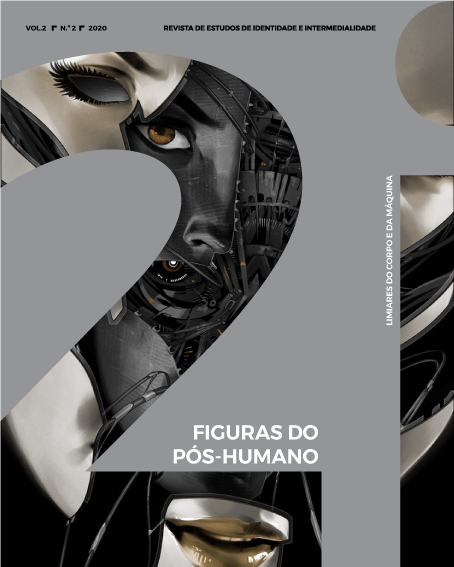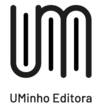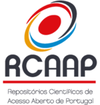Problematizando o humano e antecipando o pós-humano
De Blake e os Shelleys a Dickens e a Wells - da poesia à ficção
DOI:
https://doi.org/10.21814/2i.2648Palavras-chave:
humano; pós-humano; humanidades; literatura inglesa oitocentista.Resumo
Este artigo focar-se-á nas diversas formas como, nos seus poemas e ficções, os escritores românticos e vitorianos exploram os conceitos filosóficos e as categorias antropológicas associados ao 'humano', ao 'não-humano' e ao 'pós-humano' – num ‘admirável mundo novo’ oitocentista, cada vez mais casuístico e distópico. O artigo tentará mostrar como, no ambiente industrial, tecnológico e científico em rápido desenvolvimento do século XIX inglês, autores como Blake, Byron, os Shelleys, Dickens, Gaskell, Stevenson e Wells imaginativamente propõem diferentes possibilidades ontológicas para a existência e a reprodução do 'sujeito', não apenas especulando sobre os 'futuros' da humanidade e das humanidades, mas revelando também as suas próprias esperanças e medos mais íntimos; nomeadamente, do que um novo ‘ser' poderia implicar. O artigo mostrará que as criações ecléticas destes escritores britânicos abriram o caminho para uma realidade pós-humana cada vez mais complexa, cujos agentes culturais adaptaram e transformaram em ficções cinematográficas e metáforas multimédia que, ainda hoje, assombram a cultura popular e desafiam as comunidades científica e académica.
Downloads
Referências
Anders, Günther (2016). On Promethean Shame. In Prometheanism: Technology, digital culture and human obsolescence, Christopher John Müller, (pp. 29-95). London: Rowman & Littlefield International.
Blake, William (1965). The complete poetry and prose, edited by David Erdman Berkeley: University of California Press. Revised 1982.
Bonnet, Charles (1764). Contemplation de la nature. Tome Premier. Amsterdam: Marc-Michel Rey.
-------------------- (1770). La palingénésie philosophique, ou idées sur l’état passé et futur des êtres vivans. Tome Premier. Genève et Lyon: J.M. Bruyset.
Botting, Fred (2008). Limits of horror: Technology, bodies, gothic. Manchester: Manchester University Press.
Braidotti, Rosi (2013). The posthuman. Cambridge and Malden: Polity Press.
Brewster, Scott, et al., eds. (2000). Inhuman reflections: Thinking the limits of the human. Manchester, UK: Manchester University Press.
Bulwer-Lytton, Edward. (1871). The coming race. Peterborough, Ontario: Broadview Press, 2002.
Butler, Samuel (1872). Erewhon, or over the range. London: Trubner & Co. (Internet Archive), 2016.
Byron, George Gordon (1816). “Darkness.” The Norton anthology of English literature. S. Greenblatt. 8th ed. Vol. D. New York, London: Norton, 2006. 614-6.
Clark, D. (2001). Kant's Aliens: The "Anthropology" and Its Others. CR: The New Centennial Review, 1(2), 201-289. Consultado em www.jstor.org/stable/41949284
Clayton, Jay (2003). Charles Dickens in cyberspace: The afterlife of the nineteenth century in postmodern culture. Oxford and New York: Oxford University Press.
--------------- (2007). Victorian Chimeras, or What Literature Can Contribute to Genetics Policy Today. New Literary History, 38, 569-91.
Darwin, Charles (1871). The descent of man, and selection in relation to sex. Vols.1 and 2. London: John Murray.
Dickens, Charles (1854). Hard Times. Oxford and New York: O. U. P., 1989.
Effinger, Elizabeth (2014). "The Romantic Posthuman and Posthumanities". (Unpublished PhD thesis). University of Western Ontario, Canada. Electronic Thesis and Dissertation Repository. 1940. https://ir.lib.uwo.ca/etd/1940
Eliot, George (1860). The Mill on the Floss. Oxford and New York: O.U.P., 2008.
Foucault, Michel (1989). The order of things. An archeology of the human sciences [Gallimard, 1966]. London and New York: Routledge.
Gaskell, Elizabeth (1855). North and South. London: Penguin Classics, 1996.
Guimarães, Paula Alexandra (2018). ‘Like an inspired and desperate alchymist’: Ler/Ser Frankenstein no Cruzamento das Ciências e das Humanidades. Capítulo VII. In Alberto F. Araújo, Rogério de Almeida e Marcos Beccari (orgs.), Olhares sobre Frankenstein: Imaginário e educação. Vol.1 de Mitos da Pós-Modernidade (pp. 175-197). São Paulo: FEUSP.
Kant, Immanuel (2006). Anthropology from a pragmatic point of view, Robert B. Louden. Cambridge Texts in the History of Philosophy, C.U.P.
Ketabgian, Tamara (2011). The lives of machines: The industrial imaginary in Victorian literature and culture. Michigan: University of Michigan Press.
Levinas, Emmanuel (1947). De l’existence à l’existant. Second edition. Paris: Vrin, 1986.
Lyotard, Jean-François (1988). The inhuman. Reflections on time. Stanford, California: Stanford University Press, 1991.
Marx, Karl (1867). Capital: A critique of political economy. London: Penguin Books Limited, 1976.
Merleau-Ponty, Maurice (2003). Nature: Course notes from the Collége de France. Evanston Illinois: Northwestern University Press.
Pennant, Thomas (1781). History of quadrupeds (2 volumes). Printed for B. White, London.
Robinet, J.B.R. (1761-8). De la nature. 5 volumes. Amsterdam: E. van Harrevelt.
Shelley, Mary (1818). Frankenstein, or the modern Prometheus. London: Penguin Classics, 1992.
----------------- (1826). The last man. Ware: Wordsworth Editions, 2004.
Shelley, Percy (1820). Prometheus unbound: A lyrical drama in four acts. Cambridge: Cambridge Library Collection, 2013.
----------------- (1824). “The Triumph of Life”. Selected Poetry. London: Penguin Books, 1956.
Smeele, Wietske (2018). The Victorian posthuman, monstrous bodies in literature and science. Nashville: Vanderbilt University.
Snyder, E. E. (2013). Moreau and the Monstrous: Evolution, Religion, and the Beast on the Island. Preternature: Critical and historical studies on the preternatural, 2(2), 213-239. doi:10.5325/preternature.2.2.0213
Stevenson, Robert Louis (1886). Strange case of Dr Jekyll and Mr Hyde, and other stories. Richmond: Alma Books, 2014.
Sussman, Herbert (1968). Victorians and the machine, the literary response to technology. Harvard: Harvard University Press.
Trollop, Francis (1840). The life and adventures of Michael Armstrong, the factory boy. London: Henry Colburn.
Wells, H.G. (1896). The island of Doctor Moreau. A possibility. New York: Stone & Kimball.
-------------- (1898). The war of the worlds. New York: Vintage Books, 2018.
Wolfe, Cary (2010). What is posthumanism? London and Minneapolis: University of Minnesota Press.
Verne, Jules (1864). Journey to the centre of the earth. Oxford: Oxford University Press, 2008.
Publicado
Versões
- 2020-12-03 (3)
- 2021-05-04 (2)
- 2021-05-04 (1)
Como Citar
Edição
Secção
Licença
Direitos de Autor (c) 2020 Revista 2i: Estudos de Identidade e Intermedialidade

Este trabalho encontra-se publicado com a Creative Commons Atribuição-NãoComercial 4.0.


.jpg)










